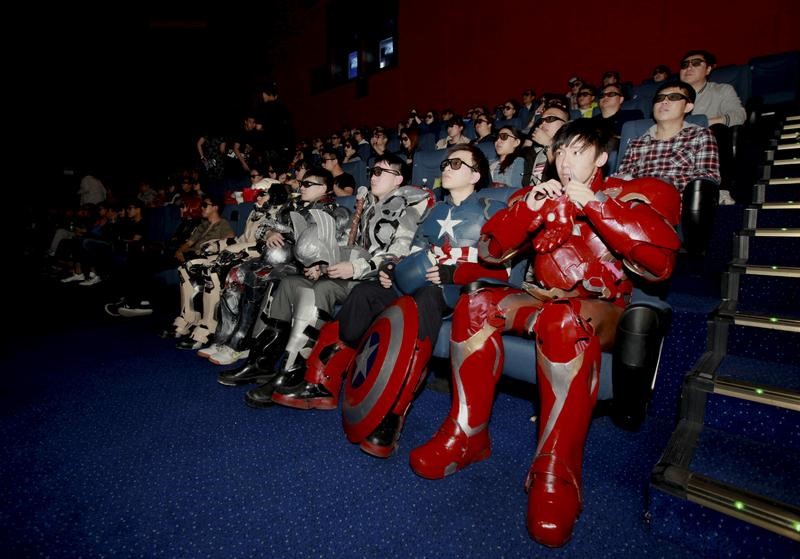By Lisa Richwine
LOS ANGELES (Reuters) - China's moviegoers embraced big-screen superheroes, cartoon animals and a video game-turned-action flick in 2016, adding $1.8 billion in ticket sales to Hollywood's 20 highest-grossing films of the year.
The revenue from the world's second-largest movie market accounted for 13 percent of the $13.5 billion generated by the top 20 movies from U.S. studios, according to a Reuters analysis of data from tracking firm Box Office Mojo. That was triple the 4 percent level five years ago.
The numbers illustrate China's growing importance to U.S. studios such as Walt Disney Co's (N:DIS) Disney Studios, Time Warner Inc's (N:TWX) Warner Bros. and Comcast Corp's (O:CMCSA) Universal Pictures.
While China's booming box office growth stalled this year in single digits, the country remains vital for Hollywood studios, box office analysts said. In 2016, China overtook the United States as the country with the largest number of movie screens.
Most of the top Hollywood movies would have reached the top of the film charts without China. But the additional revenue is significant, especially for blockbuster films that can cost $200 million or more to make.
"You can grab an extra hundred million (dollars) of revenue from the Chinese market," said Jonathan Papish, film industry analyst for China Film Insider. "You can't do that anywhere else in the world."
Walt Disney Co's (N:DIS) animated "Zootopia," known in China as "Crazy Animal City," was Hollywood's biggest hit there, with $236 million in ticket sales, and ranked as the third-highest-grossing movie worldwide. China's film authorities extended the movie's theatrical run by two weeks beyond the typical 30 days for foreign films.
"Zootopia" was followed by Legendary Entertainment's "Warcraft," a video game adaptation that flopped in the United States and Canada but scored $221 million in China, more than half of its worldwide total. It would not have landed among the year's top 20 films without the revenue in China.
Next in China was "Captain America: Civil War" from Disney's Marvel Studios, which rang up $190 million, as superhero stories continued to lure Chinese crowds.
Other family-oriented fare performed well in Chinese theaters, including Disney's "The Jungle Book" and DreamWorks Animation's "Kung Fu Panda 3."
"Family films have been doing better and better" in China, said Rob Cain, a consultant and partner at Pacific Bridge Pictures. "As the market expands into third- and fourth-tier cities, less in major urban areas, it's becoming more of a family business."
U.S. studios have tried to cater to Chinese audiences, in some cases filming in China or adding Chinese film stars.
Not all of Hollywood's blockbusters are permitted in China. The country allows 34 foreign imports in its theaters annually under a revenue-sharing agreement reached five years ago. The studios behind each film take home 25 percent of ticket sales.
Hollywood executives hope the number of films will increase when U.S. and Chinese negotiators meet to hammer out a new deal this year. Studios also are lobbying for a share of revenue higher than 25 percent.
The outcome of those talks is uncertain after the inauguration as U.S. president later this month of Donald Trump, who has criticized China's trade policies.
China, meanwhile, is trying to balance audiences' interest in Hollywood films with its desire to grow its domestic film business.

"The Mermaid" was the best-selling film of the year in China. The film is a Chinese comedy from popular Hong Kong director Stephen Chow that sold $527 million worth of tickets, making it China's highest-grossing movie in history and the 12th biggest film in the world in 2016.